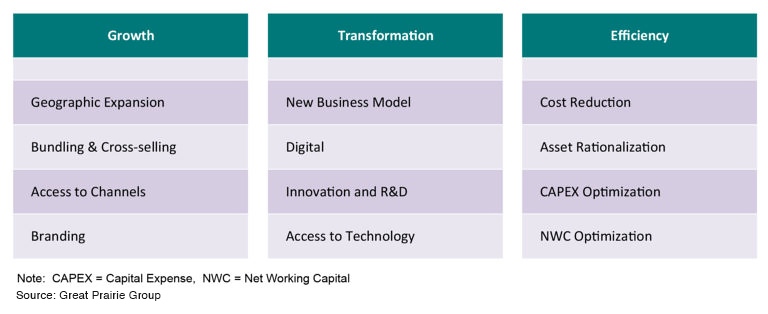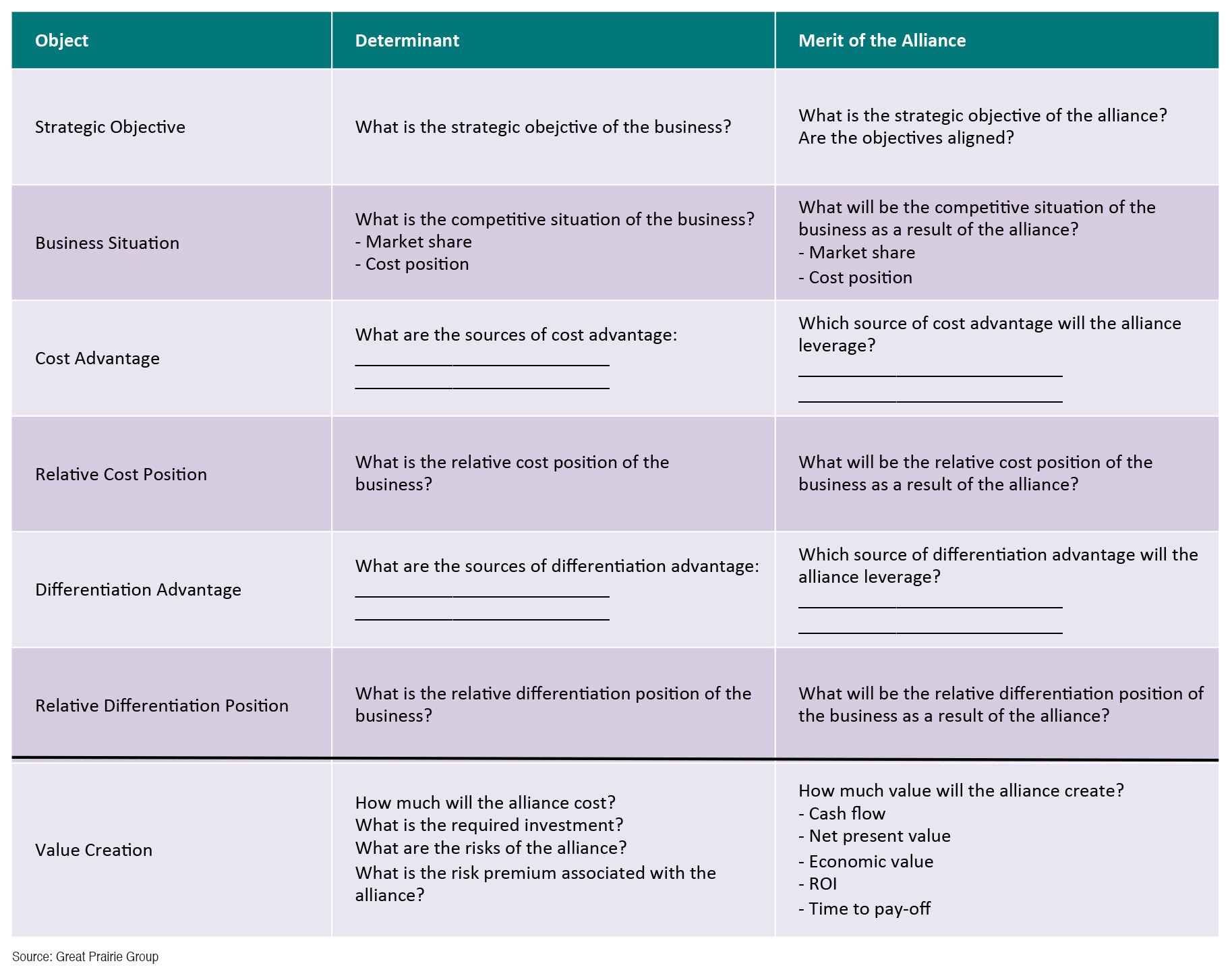A strategic alliance is an important lever of corporate value creation. It leverages the capabilities of a partner company to take advantage of an attractive business opportunity that the firm would not be able to access otherwise on its own. This article discusses the benefits and the conditions that make a strategic alliance the appropriate course of action.
THE BENEFITS
Companies commonly use strategic alliances to embrace new business opportunities. They are extremely useful in situations where a company needs the collaboration of another company to achieve strategic intent. Companies form alliances with competitors, customers, or suppliers, to take advantage of opportunities, ranging from growth to transformation, and efficiency.
Table 1. Examples of How Strategic Alliances are Used
THE CONDITIONS
Companies need to understand when strategic alliances make sense to be successful. They are appropriate for business opportunities where three conditions exist:
- The opportunity is large
- There is a high level of uncertainty and associated risk, and
- Speed to market is critical
When these conditions are present, a company usually prefers not to go it alone and opts for a strategic alliance. Here is why. One alternative to capture the opportunity would be to develop the capability in house. Development is a gradual approach that takes time, and if speed to market is essential to seize the opportunity, it doesn’t work.
Another alternative would be to acquire the capability from another firm. There are two issues with M&A. The first is that it may not always be possible to buy another company. Many obstacles may stand in the way, including cost, unavailability of a target company, and added risk.
The second issue with M&A is that given the high level of uncertainty in capturing the opportunity, the company may not want to shoulder the risk alone, in which case a strategic alliance becomes an attractive vehicle to share risk.
It is important to note that in cases where a strategic alliance makes more sense than M&A, the company foregoes a large degree of control. This issue underscores the importance of selecting the right partner and aligning control processes up front.
THE STRATEGIC FIT
The strategic alliance must align with the strategy of the firm to be valid. If not, the alliance will disperse significant resources in pursuing the wrong objective. We suggest testing the strategic rationale of the alliance to determine the degree of strategic fit with the business strategy.
Table 2. Measures of Strategic Fit

CONCLUDING REMARKS
Strategic alliances are valuable corporate instruments to create value in addition to organic development or M&A expansion. They are particularly useful for business opportunities that are large, uncertain, and where speed to market is essential. Under these conditions, strategic alliances makes sense if they align with the business strategy.

